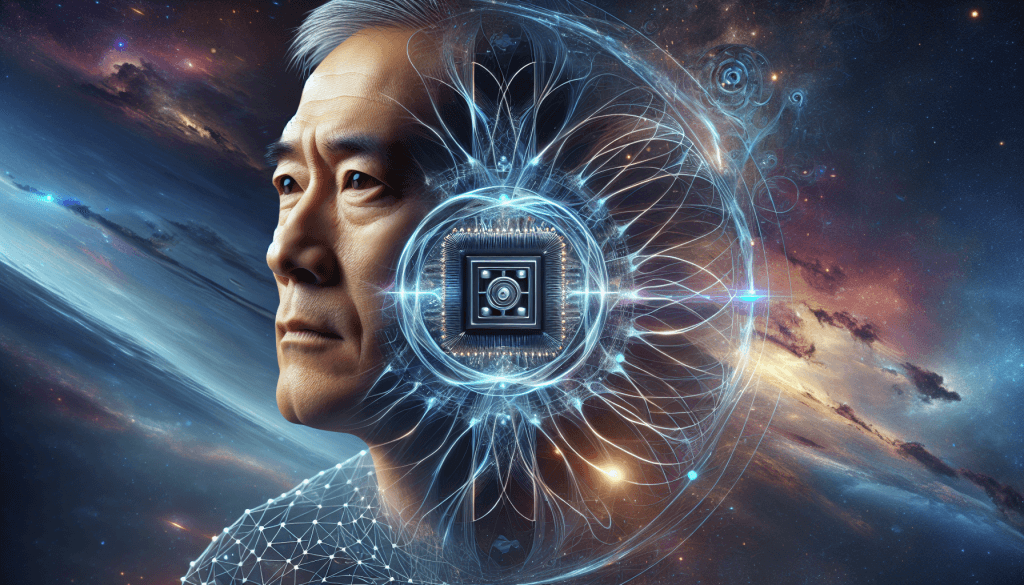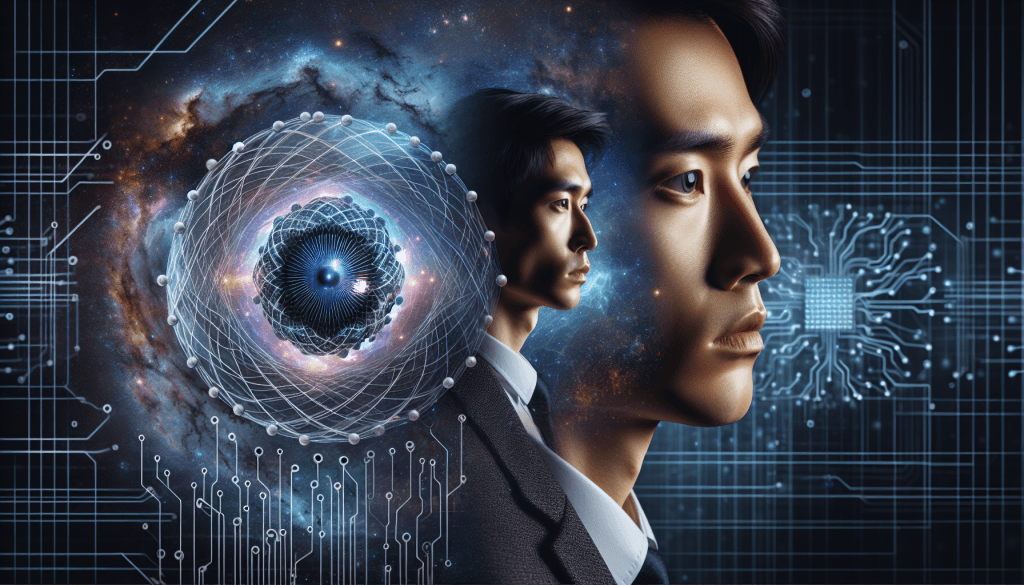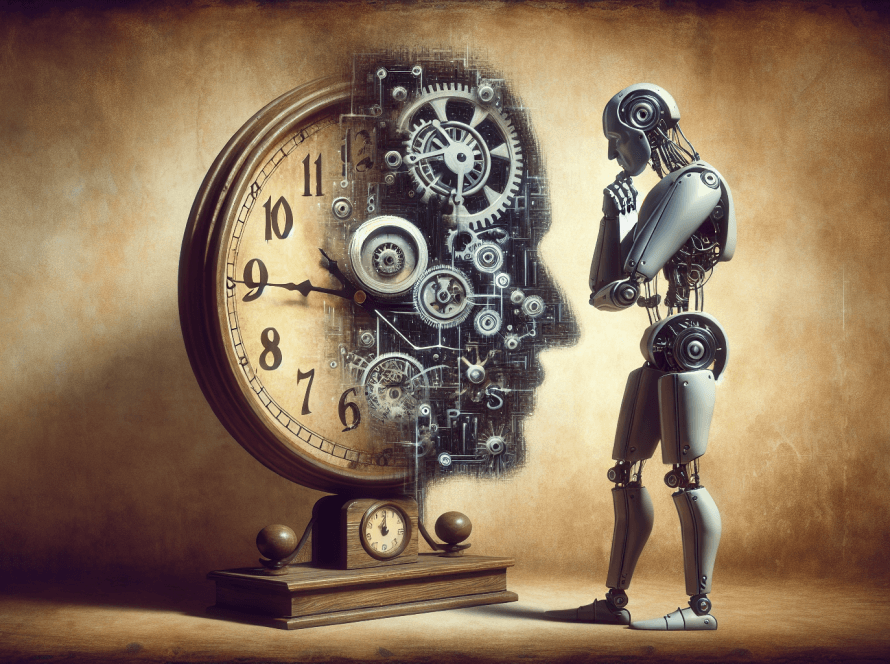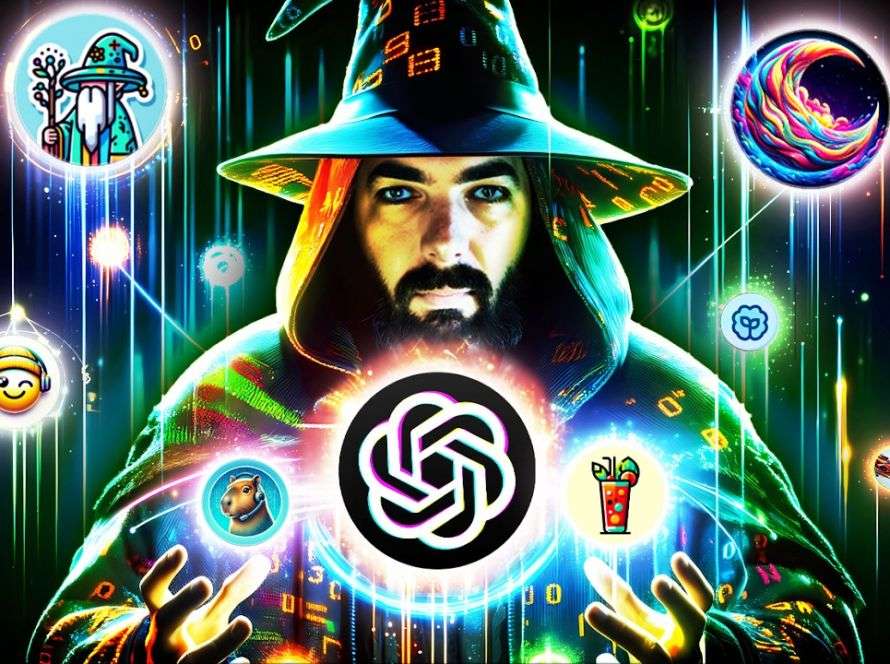Embark on a journey through the intricate world where artificial intelligence and quantum computing converge, a narrative beautifully presented by none other than the esteemed physicist Michio Kaku. You’re about to delve into the complexities of a realm where machines not only compute at unprecedented speeds but also operate within the fundamental principles of quantum mechanics. This is where you’ll uncover the remarkable potential for transforming industries and perhaps the very fabric of reality as you understand it.
Your exploration will take you through a landscape punctuated by warnings from influential figures like Elon Musk and the awe-inspiring advances made by giants such as IBM with their Quantum Centric supercomputer. You’ll grapple with the profound implications of quantum supremacy, artificial intelligence ethics, and the breathtaking possibilities in store—from the potential to revolutionize materials science to the search for distant habitable exoplanets. Strap yourself in for a glimpse into the future that is knocking at your door, a future where technology redefines boundaries and challenges your understanding of what’s possible.

The Next Computing Revolution is with AI-Quantum ft. Michio Kaku
Join a thought-provoking journey as we delve into what seems like the next leap in technological prowess: the fusion of AI and Quantum Computing, through the insights of renowned scientific visionary, Michio Kaku.
The Convergence of AI and Quantum Computing
Understanding the way AI enhances quantum computing
Imagine your typical computer but with the ability to solve problems at speeds that are almost unfathomable. That’s the power AI exerts when paired with quantum computing. AI can optimize algorithms, improve quantum circuit design, and even control error rates in quantum bits (qubits). This synergy is creating ripples across the scientific community, pushing the boundaries of what’s computable.
Michio Kaku on the edge of technology advancements
Dr. Michio Kaku has long been at the forefront of scientific thought, often guiding us through the complexities of next-generation technologies. When it comes to AI and quantum computing, he sees an unprecedented intersection – one that could redefine our current understanding of computing and problem-solving.
The significance of the AI-Quantum intersection
The marriage of AI and quantum computing is not just significant; it’s revolutionary. With AI’s predictive power and quantum computing’s immense processing capabilities, we’re looking at challenges like climate change and incurable diseases from a hopeful new perspective.
The Quantum Leap in Computing
Quantum supremacy and its implications
Achieving quantum supremacy means that a quantum computer has solved a problem that is practically impossible for a classical computer. This milestone isn’t just about bragging rights; it heralds a new dawn where traditional computing is just the beginning, and quantum takes over to tackle the previously impossible.
The concept of qubits and parallel universes
A qubit is to quantum computing what a bit is to classical computing. But here’s the twist: thanks to superposition and entanglement, qubits can represent multiple states simultaneously, akin to tapping into vast arrays of parallel universes all working together to solve a puzzle.
How quantum computing differs from classical computing
In your daily use, a classical computer processes tasks in a linear fashion, one after the other. A quantum computer, on the other hand, dwells in a realm where tasks are processed in a sort of multi-dimensional space, all at once. It’s like comparing a solo jigsaw puzzle effort to a coordinated global team working in harmony.
Pioneering Innovations in Quantum Technology
IBM’s Quantum Centric supercomputer
IBM’s venture into quantum computing, with its Quantum Centric supercomputer, promises to unlock mysteries that could revamp entire industries. These powerful machines stand to transform everything from logistics to drug discovery.
Google’s Sycamore processor and quantum supremacy
Google’s Sycamore has been a trailblazer in achieving quantum supremacy. The processor completed a complex task in a matter of minutes, setting a speed benchmark for quantum computing and demonstrating capabilities beyond our wildest expectations.
China’s jiuzhang quantum computer’s breakthrough speeds
China’s jump into the quantum realm with the jiuzhang quantum computer has set records for processing speed, proving that they are not just participants but leaders in this quantum race. This astounding pace paves the way for breakthroughs in numerous scientific fields.

The Competitive Race for Quantum Dominance
Key industry players in quantum computing
The who’s who of the tech world—you’ve got IBM, Google, and a bevy of startups—are all fervently developing their quantum computing technologies. Each aims to be the first to achieve a commercial breakthrough that will change the game entirely.
The urgency and implications of achieving quantum viability
The sprint to quantum viability is not just about speed; it’s about shaping the future where problems that stump today’s supercomputers become child’s play tomorrow. The societal, economic, and scientific implications are profound, extending the reach of human capabilities.
Michio Kaku on the global pursuit of quantum technology
Dr. Kaku recognizes this global quantum pursuit as a pivotal shift reminiscent of the space race. It’s not merely about technological pride but about seizing an opportunity that could define the next epoch of human civilization.
Potential and Concerns of Quantum Capabilities
AI and quantum computing in materials and fertilizers
Utilizing AI and quantum computing, we could discover new materials for carbon sequestration or create energy-saving fertilizers—both crucial for our planet’s future. The potential to solve such large-scale environmental issues is tantalizingly within reach.
The balance of potential benefits and ethical concerns
As with any powerful tool, there’s the balance we must strike between benefits and ethical considerations. The powers of AI and quantum computing could lead us into utopia or distopia depending on governance, intent, and foresight.
Elon Musk’s warning about AI dangers amplified by quantum technology
Elon Musk’s caution regarding AI—a potential risk greater than nuclear weapons—gets amplified when considering quantum computing’s capabilities. The thought of such tech falling into the wrong hands underscores the need for responsible innovation.

Foundations of Quantum Theory
The early 20th century developments
In the early 1900s, scientists like Max Planck and Albert Einstein laid down the conceptual bricks that would build the mansion of quantum theory—an edifice that continues to expand and astound.
Bohr, Pauli, Heisenberg, and the birth of quantum mechanics
Wrestling with the strange behaviors of the atomic and subatomic world, scientists like Niels Bohr, Wolfgang Pauli, and Werner Heisenberg birthed quantum mechanics, creating the fabric of reality as understood in the quantum realm.
The concept of entanglement and its revolutionary potential
Entanglement—a bizarre phenomenon where particles are mystically linked regardless of the distances separating them—offers unprecedented potential in the realms of information transfer, encryption, and maybe even the fabric of space-time itself.
Quantum Computing: From Theory to Reality
Alan Turing’s foresight on quantum computing
Alan Turing, often heralded as the father of modern computing, glimpsed the horizon of what quantum mechanics might mean for computing. His foresight set the stage for an era where computational boundaries are constantly being redefined.
Developments of quantum algorithms and models
The development of quantum algorithms and models has been transformative. These are the secret sauce that allows quantum computers to operate in ways that classical computers cannot even begin to emulate.
Milestones in quantum computing, from theory to commercialization
From theory to tantalizing commercial prospects, quantum computing has leapfrogged from the blackboards of theoretical physicists to the silicon (or rather, superconducting circuits) of actual, operational machines.
AI and Quantum Computing Synergy
Enhancing computational capabilities
The synergy between AI and quantum computing is no less than a robust force multiplier, enhancing computational capabilities beyond what we’ve ever known. This potent combination promises to redefine the landscape across industries.
The future of encrypted systems and cybersecurity
With quantum computing, we step into a future where the concept of cybersecurity is turned on its head. Encrypted systems once thought impregnable may soon need quantum solutions to retain their fortitude against quantum attacks.
The prospect of AI becoming uncontrollable in a quantum world
The concern of AI becoming uncontrollable is not just science fiction anymore. In a quantum world, where AI can process and learn from vast amounts of data unprecedentedly, we must ensure checks and balances are in place.
Conclusion
Summarizing the quantum-AI revolution’s impact
The quantum-AI revolution marks a pivotal point in history, resembling the shift from steam to electricity. This is where our understanding of the universe and our technological prowess interweave to open doors to the previously unimaginable.
Michio Kaku’s vision of the future
Drawing from Michio Kaku’s expansive vision, we could be stepping into an age where the democratization of quantum-AI could lead to collective advancements or centralized power dynamics, depending on how we steer this ship.
The uncertain role of humanity in the upcoming technological era
The true impact of the quantum-AI revolution becomes a reflection of humanity’s wisdom. Will we ascend to new heights of enlightenment, or will we lose ourselves to the very technologies that were meant to serve us? The canvas is vast, and it is ours to paint.


